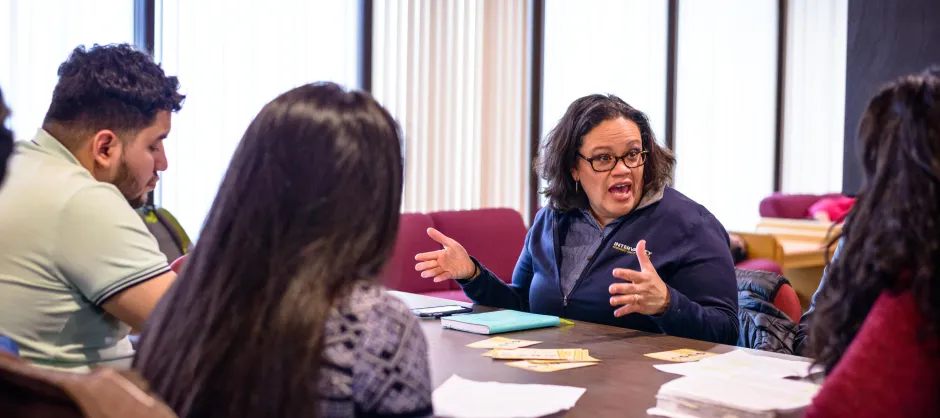
Disability Awareness Training for IV Staff
5 Stages of Disability Awareness

- Ignorance – Lack of knowledge (rude or negative opinions)
- Pity – Feeling sorry (good opinions but ignorant actions; they need healing)
- Care – I can help (good opinions and a heart to help effectively)
- Friendship – Genuine relationship
- Co-laborers – Serving together
General Disability Etiquette: 3x3 Guides
Open 'Welcoming Students with Disabilities' PDF Download DOCX Version
Open 'Welcoming Students with Autism Spectrum Disorder' PDF Download DOCX Version
How to Interact Respectfully
- Ask questions
- Talk to them like any other college student and hold the same expectations
- Don’t touch assistive devices unless friendship and consent are established
Physical Accessibility
- Look around and ask students for feedback
- Create a suggestion box to gather ideas anonymously
- Ensure ramp, elevator, or floor-level access
- Allow room and freedom to move around
- Make accessible transportation options available
Inclusive Language
- People-first language is the safest approach (e.g., “person with a disability”)
- Avoid phrases like “disabled person” unless you know their preference
Modifications & Accommodations
- Provide large print materials or send documents in advance
- Offer interpreters when needed
- Ask about housing and meal accommodations for overnight events
- Provide a quiet space to decompress
- Have noise-canceling headphones, fidgets, and weighted blankets available
- Give permission to ask for and use modifications without shame
- Ensure accommodations are not framed as burdens
- Be aware of emotional impacts, don’t let students feel abandoned or like their needs are “too much”
Questions & Workshop Resource
Resource Topic - Primary
Resource Type
Audience
